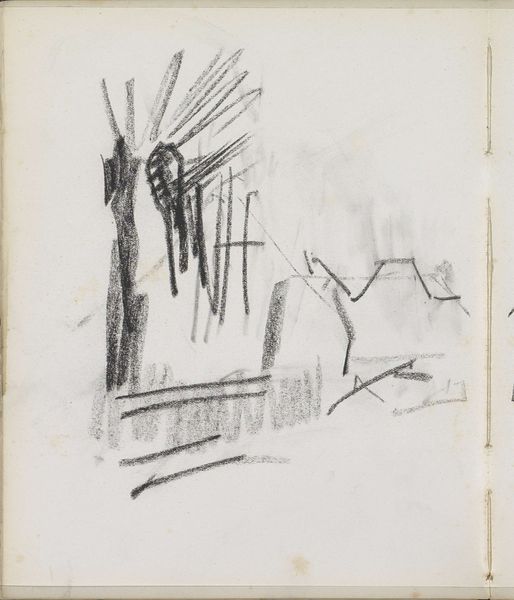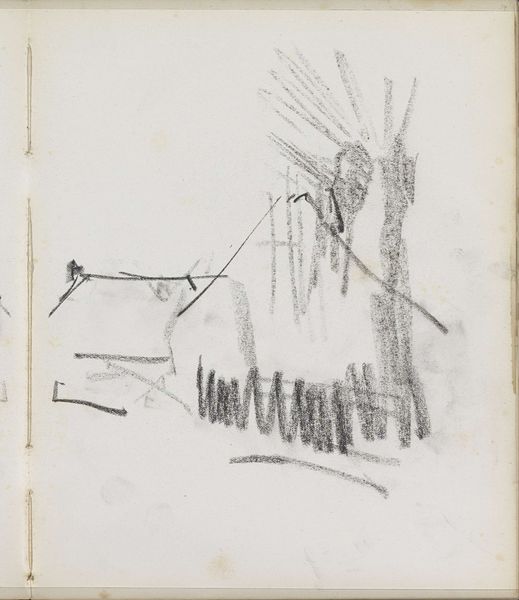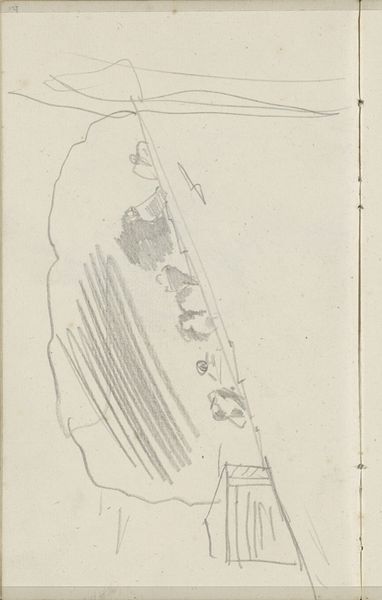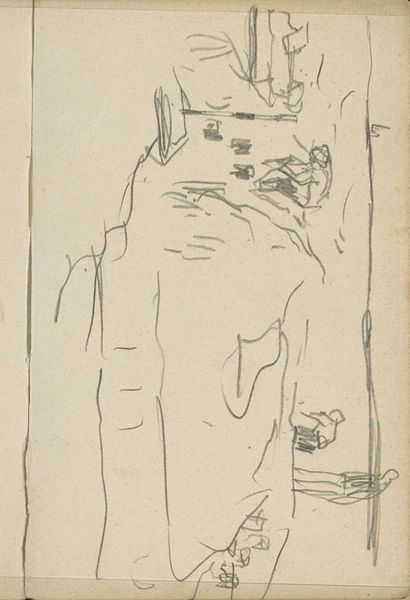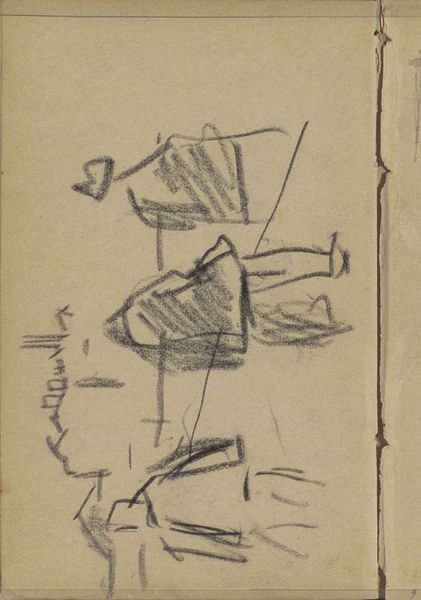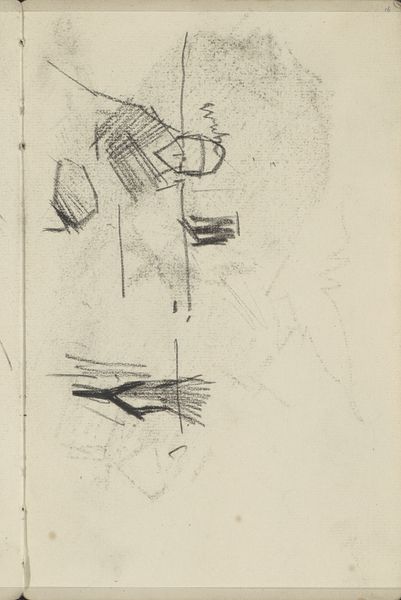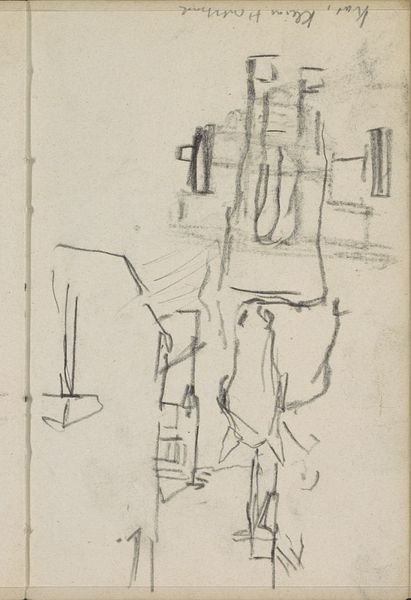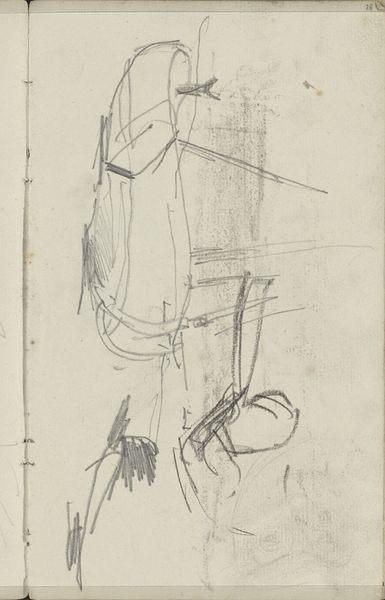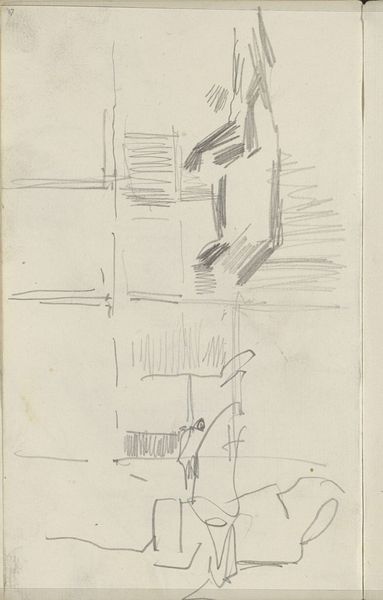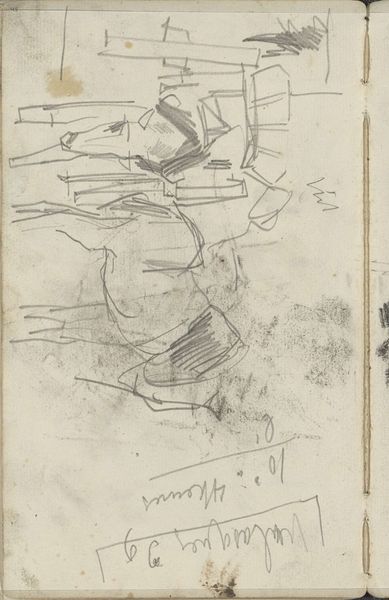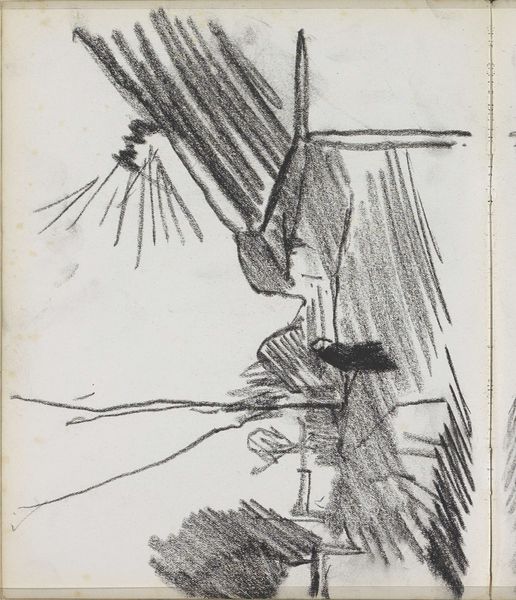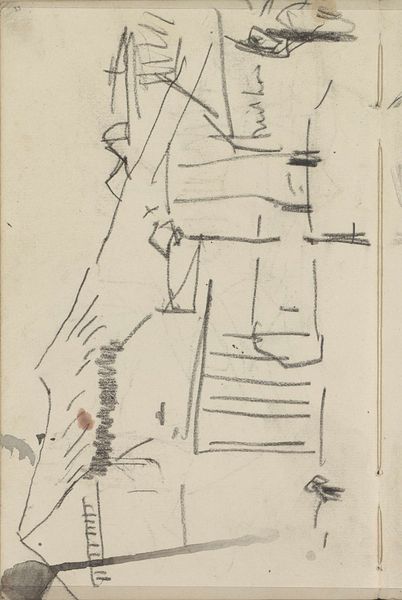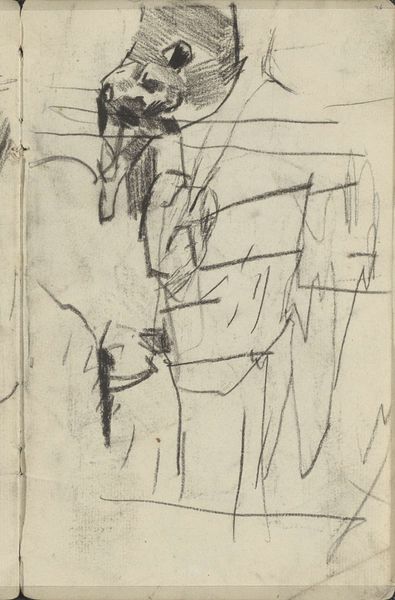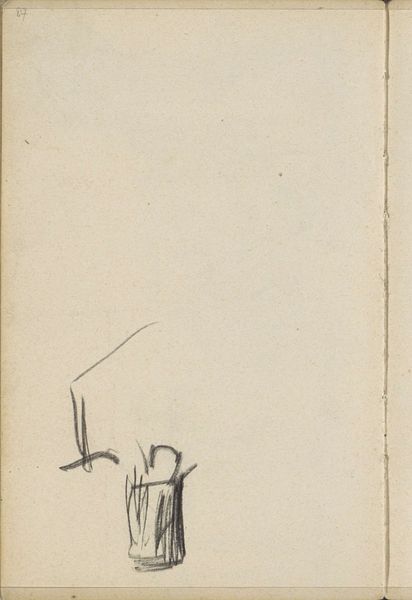
Copyright: Rijks Museum: Open Domain
Curator: George Hendrik Breitner created this charcoal and pen sketch titled "Boerderijen," or "Farmhouses," sometime between 1880 and 1906. It's currently held at the Rijksmuseum. Editor: Immediately, I’m struck by the contrast between the sharply defined architectural elements and the loose, almost frantic, hatching. It gives the work an unsettled, restless energy, despite the relatively static subject matter. Curator: Indeed, the immediacy you observe connects strongly to the Realist movement, aiming to capture modern life as it was experienced. Breitner was known for his cityscapes, yet these farmhouses reveal his engagement with the Dutch landscape tradition as well. This piece exemplifies how Impressionism was changing conventional genre scenes. Editor: Precisely, see how the application of charcoal directs our vision? The dark window is like a visual anchor, juxtaposed against lighter planes of form. This juxtaposition implies not only structure, but time. Does the blocked window reveal the house to be empty? What can be implied about its location on the farm, facing or set aside from public access and use? These lines express a tension between permanence and the fleeting moment. It captures a sense of a moment being stolen, fleeting, before he sets off for another quick study. Curator: Consider how Breitner depicted everyday life for the common person. Farmlands during that era were subject to political and socio-economic transformation, including intense pressure from expanding cities, the Industrial Revolution and resulting pollution. A subject such as a rural farmhouse becomes a study of national identity, perhaps even resistance. The rapidly sketched composition almost hints at urbanization encroaching on the countryside. Editor: It certainly highlights how a seemingly simple drawing contains layers of technical and social observations. Breitner isn’t merely representing farmhouses; he's interrogating what they stand for during that transformational period. Thank you for highlighting the complexity, Curator. Curator: The pleasure was all mine, Editor. Appreciating both its formal tension and historical depth offers such a fuller reading of this sketch.
Comments
No comments
Be the first to comment and join the conversation on the ultimate creative platform.
